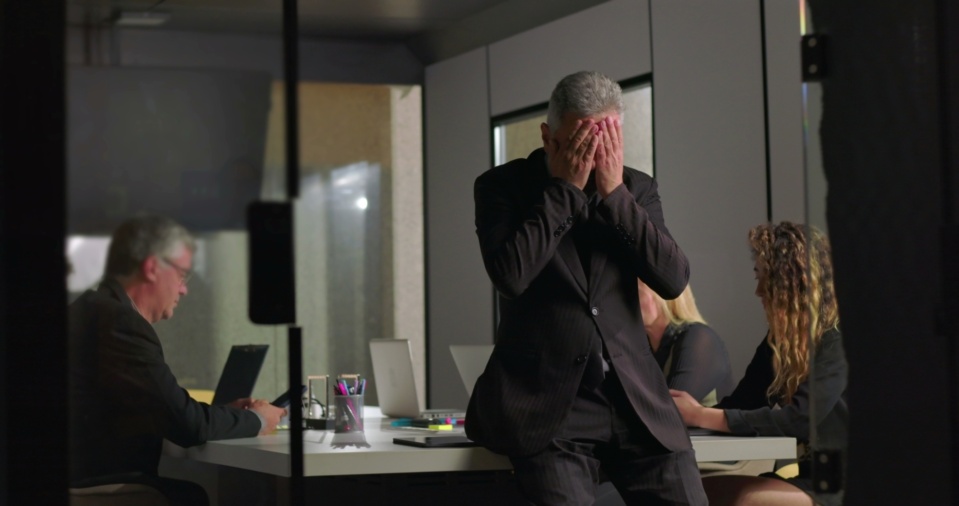
What not-for-profit leaders need to know in 2026
Posted on 12 Feb 2026
Our special NFP trends report distils the views of more than two dozen experts.
Posted on 10 Apr 2024
By Brett de Hoedt, not-for-profit communications specialist and Mayor of Hootville Communications

If crises were predictable we’d never have to experience them, but life is complicated and – in time – your crisis is inevitable.
Crises come in many forms – sometimes you are to blame, at other times you are but an innocent victim, some arise out of the blue but many are slow-burning. I’ve dealt with crises for clients that were literally a decade in the making. Regardless, a crisis will test your mettle and your communications.
You’re more likely to have a crisis if you are a large employer, utilise volunteers, fall into the culture wars (transgender issues), have a unionised workforce (Qantas), work with vulnerable groups (homeless, aged, people with disabilities), seek big cultural or economic changes (ending negative gearing, cutting migration), or are a faith- or ethnically based organisation (as seen during the Gaza–Israel war).
Plus individuals are more willing and able to create a crisis – sometimes just for the LOLs.
Everybody’s crisis will be different.
You may be seen as liable for the situation – or not.
You may start with a high degree of goodwill – or not.

High liability and low goodwill is the Kenny Loggins quadrant (aka the Danger Zone). Suddenly heads must roll and the future is uncertain. Eg: You are cutting back on aged care services (high liability) and experience low goodwill (you are a local council). This is when the threat is existential.

Most crises don’t involve media, though they loom large in our imagination. One tip: you don’t have to respond to media enquiries and you need not do an interview. Frankly, if you are culpable for the crisis, think thrice about doing media.
Keywords here are: deny, delay, distribute (blame), discredit (those who deserve some of the blame), delegate (to a committee or peak to investigate), do not call back, and if all else fails threaten defamation.
I’ve snuffed out media interest for clients by playing a dead bat – delaying our response, clarifying their perceptions of the situation and keeping communications strictly off the record. If you do chose to front the media be sure to be professionally and thoroughly prepared.
And if you are an innocent party you need to rush to the media to set the record straight.
Crises can bubble away on the backburner for years. As a leader, you need a culture that encourages everyone to raise their concerns with senior staff, secure that they as messengers won’t be shot.
Instead of talking to media, you need to prioritise your stakeholders, starting with those who can decide whether you live or die: government, regulators, funders and partners. Stakeholders need to be kept in touch and kept abreast of your remediations, ideally face-to-face from your most senior folk.

Crises can bubble away on the backburner for years. As a leader, you need a culture that encourages everyone to raise their concerns with senior staff, secure that they as messengers won’t be shot. Disgruntled clients, staff or volunteers, related party transactions, poor governance and dubious practices are often well known in an organisation but only in certain circles.
You need a plan far ahead of the crisis. A simple plan will:

There are many elements to reducing your risk, ranging from hiring well, to firing quickly, strong social media policies, building strong bonds with media and stakeholders and – need I say – having a high quality organisation to begin with.
Most crises go undiscovered and even those that do manifest are survived with just a few bruises – typically fewer than are deserved.
Brett de Hoedt has spent the last quarter of a century as the undisputed Mayor of Hootville Communications.
Access the full presentation upon which this article is based, in which Brett explains that organisations should, at miniumum:
Tap here to access the 75-minute session. ($88 for ICDA members)
ICDA tools and resources: Insurance and risk management

Posted on 12 Feb 2026
Our special NFP trends report distils the views of more than two dozen experts.

Posted on 10 Feb 2026
As my family dropped our teenage son off at the airport in the first week of January to embark on a…

Posted on 11 Dec 2025
Community Directors trainer Jon Staley knows from first-hand experience the cost of ignoring…

Posted on 10 Dec 2025
As a qualified yoga instructor who learned the practice in her hometown of Mumbai, Ruhee Meghani…

Posted on 10 Dec 2025
Anyone working in an organisation knows it: meetings follow one after another at a frantic pace. On…

Posted on 10 Dec 2025
Stressed, overwhelmed, exhausted… if you’re on a not-for-profit board and these words sound…

Posted on 10 Dec 2025
The Institute of Community Directors Australia trains over 22,000 people each year, which gives us…

Posted on 03 Dec 2025
Many not-for-profit (NFP) board members in Australia are burnt out, overwhelmed and considering…

Posted on 26 Nov 2025
A roll call of Victoria’s brightest future leaders has graduated from a testing and inspiring…

Posted on 12 Nov 2025
At the Institute of Community Directors Australia, we believe that stronger communities make a…

Posted on 12 Nov 2025
Like many Community Directors members, Hazel Westbury is a community leader who isn’t easily…

Posted on 11 Nov 2025
I’ve seen what happens when fear of conflict wins out over taking a principled stand.